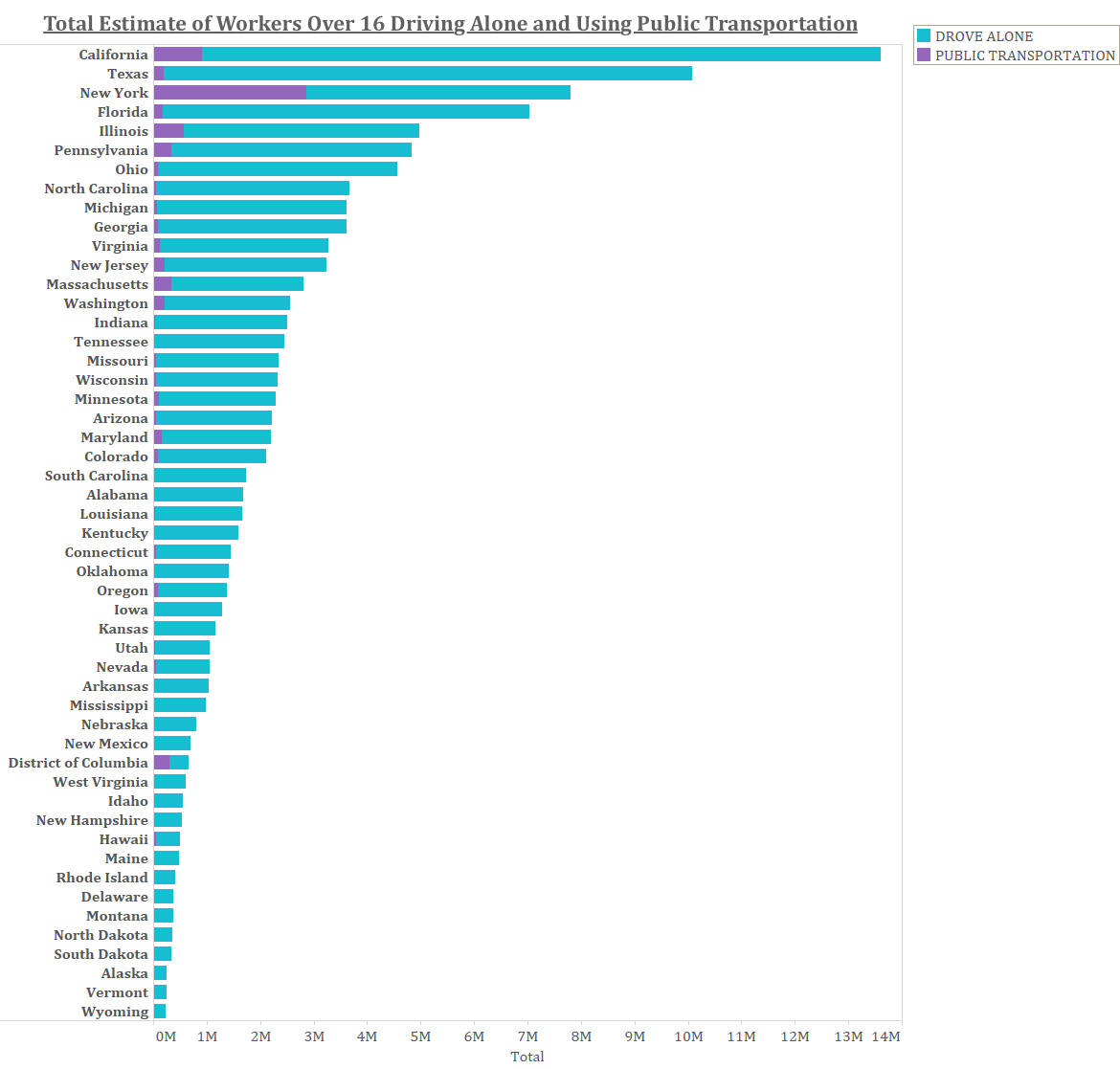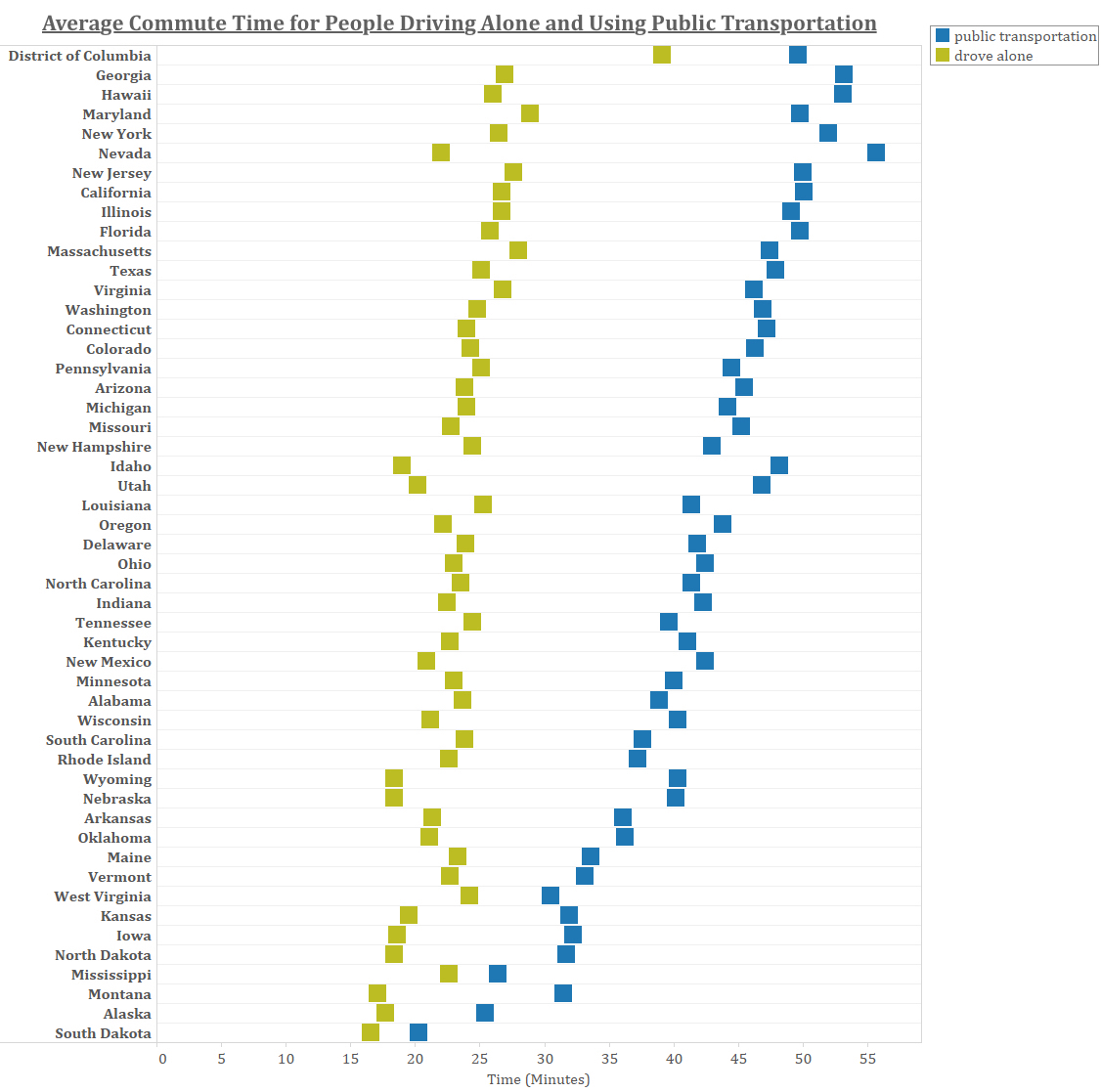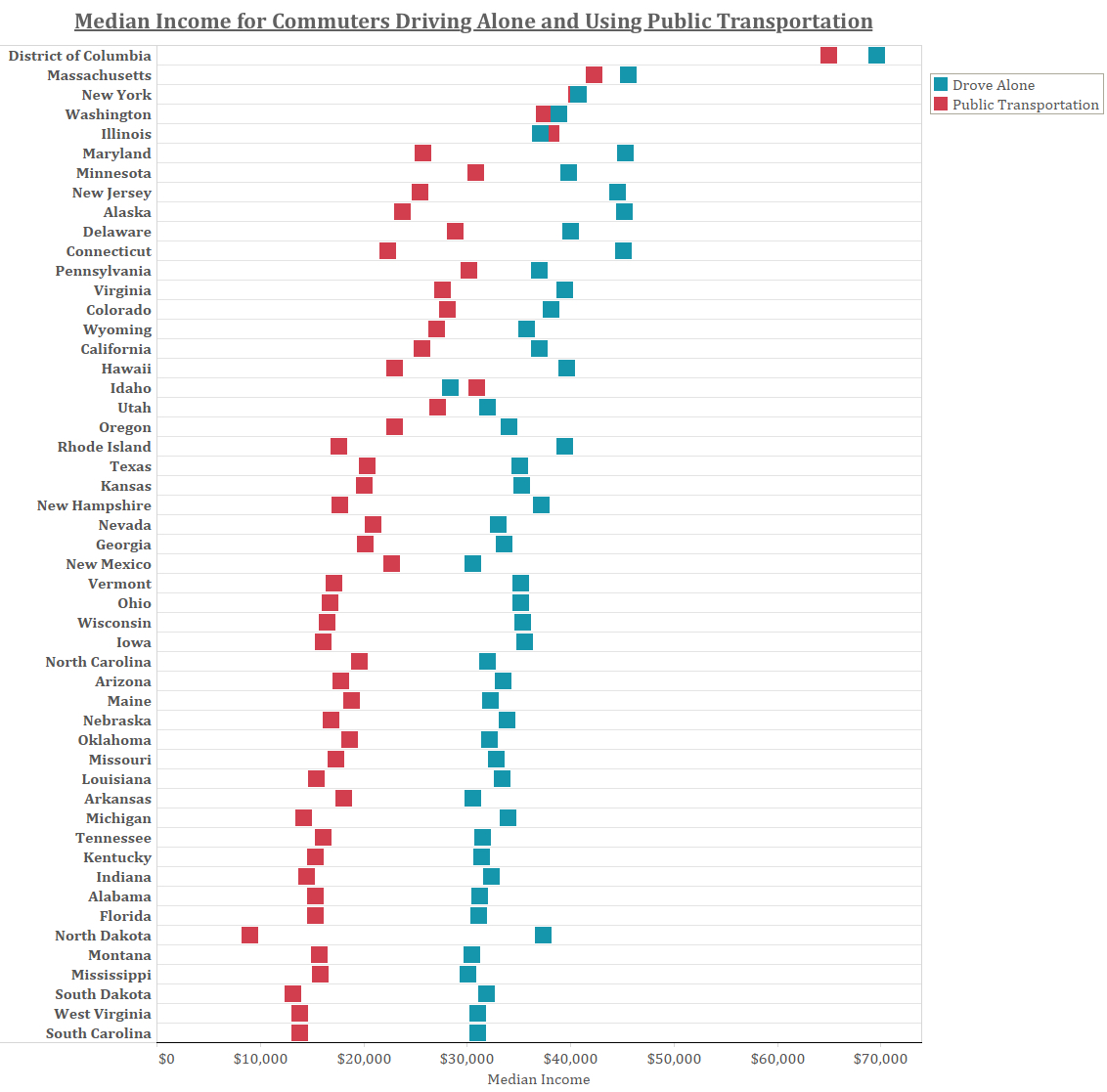Stats Shot: Solo Drivers vs. Public Transit Riders. Who Tends to Earn More and Get to Work Faster?

Nancy Tripp Photography / Shutterstock.com

Connecting state and local government leaders
Recently released U.S. Census data provide some state-level insight.
This is the next installment in Stats Shot, a semi-regular series of posts looking at the statistics that shape state, county and municipal governments and the communities they serve across the United States.
Compared to people driving alone, average commute times are longer for public transit riders in all 50 states, according to data released by the U.S. Census Bureau last week.
The figures also show that except for two states—Idaho and Illinois—median earnings are lower among commuters using public transportation versus those driving to work by themselves.
“It’s not surprising,” Evelyn Blumenberg, chair of the urban planning department at the University of California, Los Angeles, said during an interview on Monday, after hearing a description of those findings.
“The reason why people take cars is because they’re fast," she added.
While state-level figures may be a crude metric compared to the granular commuter data available for metropolitan areas or counties, the numbers, included in the American Community Survey for 2014, broadly align with more detailed research.
Blumenberg pointed out that “most people, regardless of their household income, get around using a car,” but noted that “lower-income commuters are much more likely to use transit than higher income commuters,” particularly by riding buses. “A lot of higher income transit users have a choice, they’re choosing to take transit when the circumstances are ideal for them,” she said.
This first chart shows estimates for the number of workers over 16-years-old who drove alone and used public transportation in each state and Washington, D.C. last year.
The number of commuters driving solo far exceeded those riding public transit in every location. But there are states such as New York where the ratio of drivers to transit users was less lopsided. And in Washington, D.C., it was closer to even.

Joseph Kane, a researcher at the Brookings Institution’s Metropolitan Policy Program, stressed that when considering statewide data it's important to keep total numbers in mind.
Comparisons get difficult between, say, New York, where droves of people ride buses and trains to get to their jobs in and around New York City each day, and a state such as Alabama.
“Birmingham, like 95 percent of all commuters are just driving to work," Kane said, referring to the central Alabama city with roughly 212,000 residents. When it comes to public transit use in a city like this, he added, “the size of the population you’re really looking at is so small.”
With that caveat about the total number of public transit commuters in mind, here is another chart, which shows average commute times for people driving alone (green squares), versus those using public transit (blue squares), in all 50 states and Washington, D.C.

Checking in with the highest average commute time for solo drivers, at roughly 39 minutes, was Washington, D.C. Nevada, meanwhile, had the longest average commute time for public transit users—about 55 minutes. But it is worth noting that the total estimated number of public transit commuters in Nevada was just 54,889. The estimate for commuters who drove alone last year in the Silver State was 995,555.
Despite some variation, getting around by car was, on average, the fastest commuting option in every state.
Rosabeth Moss Kanter is a professor of business administration at Harvard Business School. She recently authored the book, “Move: Putting America's Infrastructure Back in the Lead,” which examines some of the challenges surrounding the nation’s transportation networks and how these issues might be addressed.
“When we were looking at users of public transportation among people in lower-income areas they often had to make several different connections and go back and forth between buses and subway trains,” she said of her research. “Car you can go point-to-point, sort of.”
Kanter also said: “Public transportation doesn’t always go the places, into the neighborhoods, where there are people that need to break out of poverty by getting to jobs.”
At the state level at least, the American Community Survey data seem to indicate that people who drive to work alone tend to be earning more compared to public transit riders.
This final chart shows median earnings estimates for last year, for people commuting alone in their cars (blue squares) and those taking public transportation (red squares).
Places where the gap in median income between the two groups was narrowest tend to be states with big metropolitan areas, like Massachusetts, where Boston is located, Washington, where the population is heavily clustered around Seattle and Tacoma, and New York.
Idaho, and Illinois, which is home to Chicago, are the two states where earnings were actually higher among public transportation commuters than people who drive to work by themselves.

Kane, of the Brookings Institution, explained that digging deeper in these figures, by looking at metropolitan regions, reveals more nuance.
“We are, in some cases, seeing a lot of higher-income workers actually desiring to be closer to public transit,” he said. “There’s kind of this growing interest among old and young workers, in particular, to have those transportation options. Many of whom are in good, well-paying jobs.”
Kane also highlighted research his colleagues published in March, which found that the distances between where people live and work have increased in many places during recent years.
“There are a lot of factors at play,” he said. “It’s hard to create a generalized story.”
Harvard’s Kanter did suggest one possible interpretation of the state-level figures.
“It speaks, in part, to the underinvestment in the United States in public transportation,” she said.
Kanter acknowledged that cities such as New York City, Washington, D.C., and Boston have robust public transit systems. But, “even the good systems don’t meet international standards," she added, "and they’re vulnerable in many ways.”
Emphasizing the importance of thinking long-term about how to get transportation options in place that provide people with alternatives to driving alone to work, Kane said: “It’s sort of an issue that, I would argue, crosses workers across all skill levels, across all industries, really across all areas nationally.”
Bill Lucia is a Reporter for Government Executive’s Route Fifty.

NEXT STORY: Your State’s Tax System Probably Isn’t Fair



